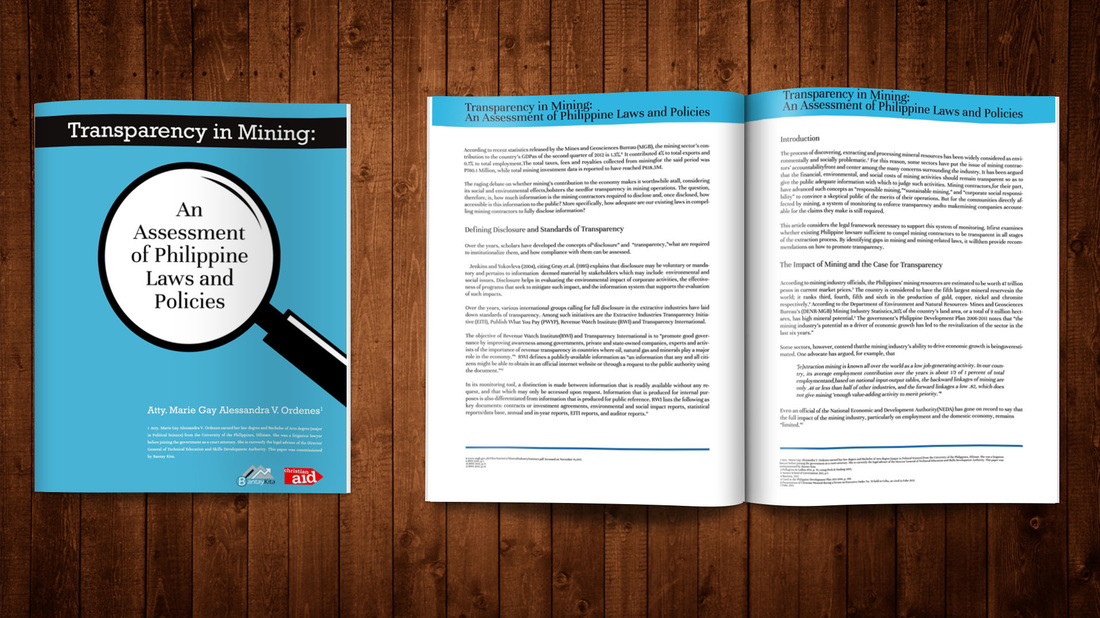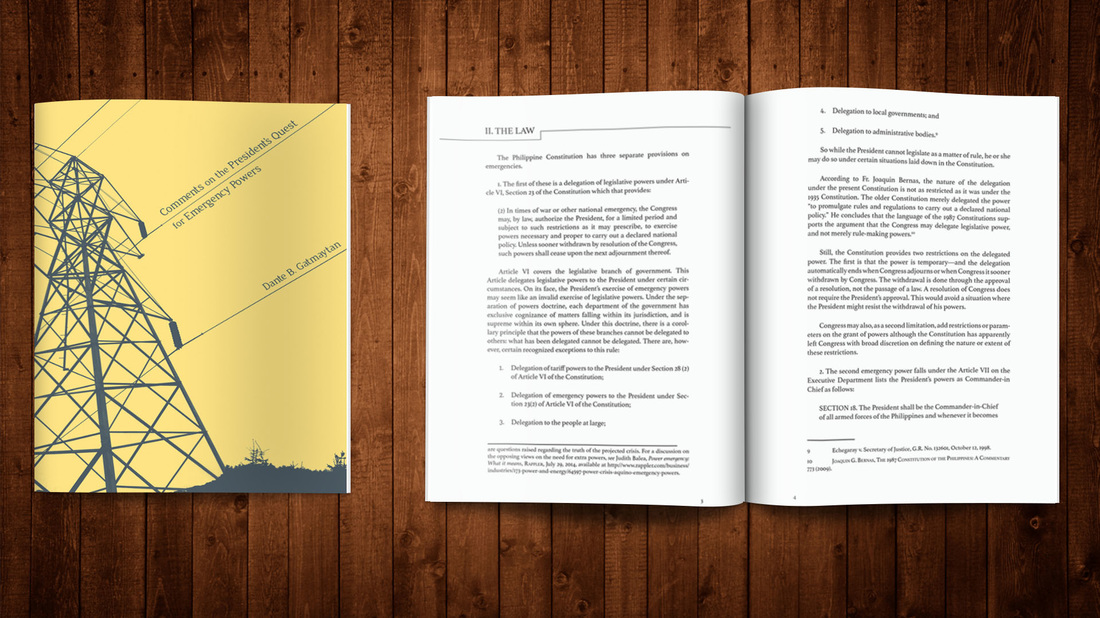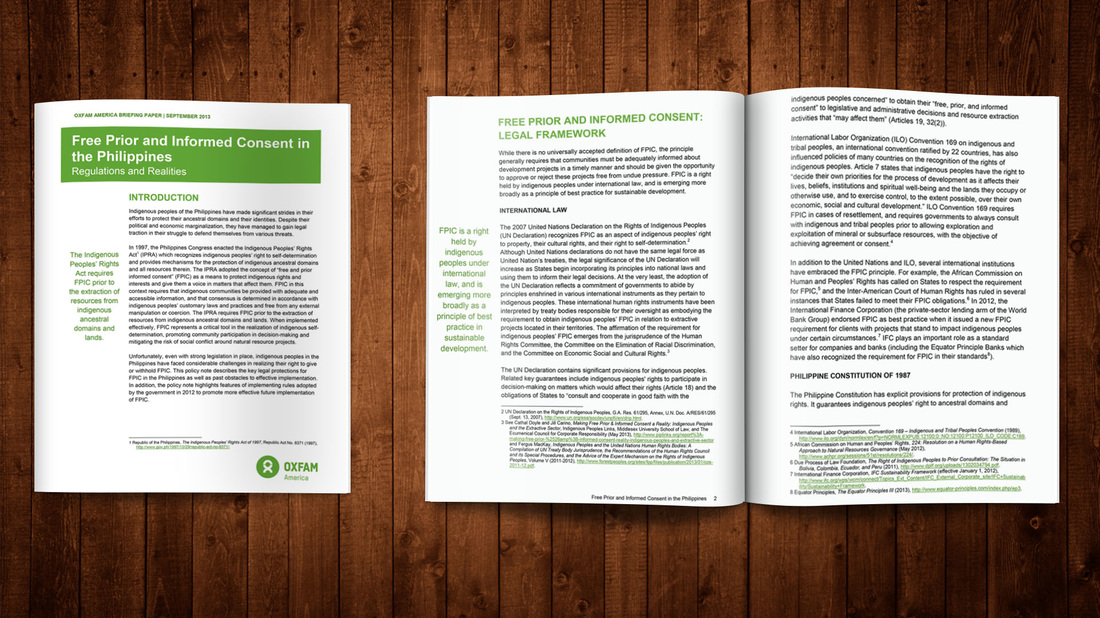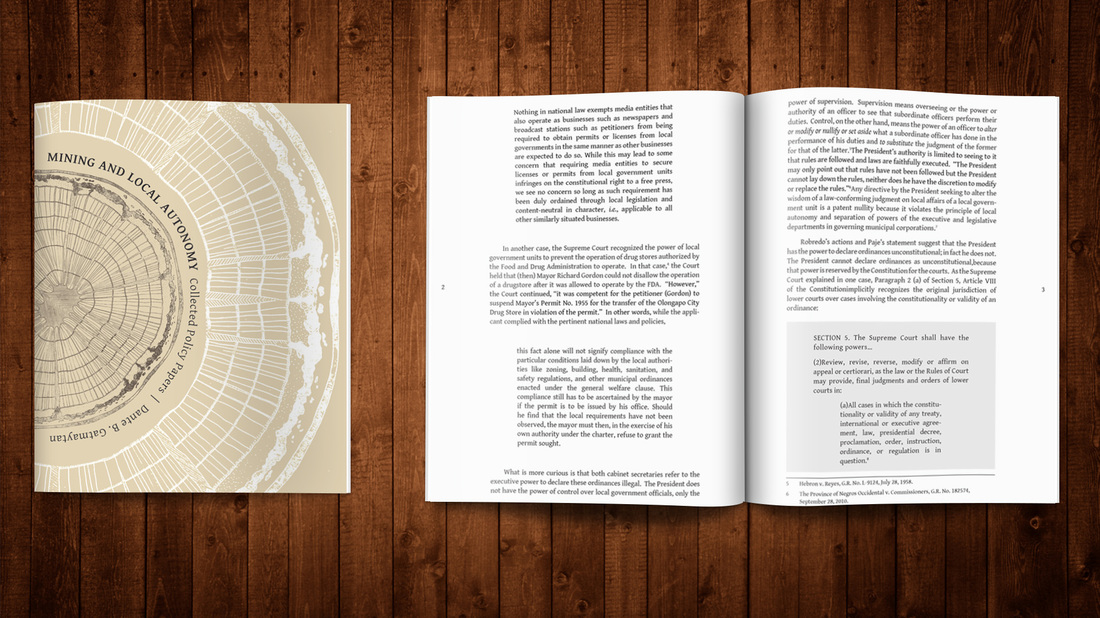Excerpt:This article considers the legal framework necessary to support this system of monitoring. It first examines whether existing Philippine laws are sufficient to compel mining contractors to be transparent in all stages of the extraction process. By identifying gaps in mining and mining-related laws, it will then provide recommendations on how to promote transparency. About the Author:Atty. Marie Gay Alessandra V. Ordenes earned her law degree and Bachelor of Arts degree (major in political science) from the University of the Philippines Diliman. She was a litigation lawyer before joining the government as a court attorney. She is currently Regional Director to Southeast Asia and Asia Pacific at the Extractive Industries Transparency Initiative Secretariat. Content:
Excerpt:The idea of a President exercising emergency powers brings horrible memories in the Philippines. Emergency power is associated with the brutal martial law regime of the late dictator Ferdinand E. Marcos which lasted for more than a decade. In truth, Marcos did not have a monopoly on the exercise of emergency powers. Since the adoption of the 1935 Constitution, Presidents have been given emergency powers for a variety of reasons.4 Not too long ago, President Fidel V. Ramos was granted emergency powers to deal with the power crisis in the 1990s.5 President Estrada mobilized the Philippine Marines to deal with the rising criminal activities during his term.6 President Gloria Macapagal-Arroyo issued Proclamation No. 1959 declaring martial law in President in the Province of Maguindanao in response to the Maguindanao massacre. About the Author:Atty. Dante Gatmaytan is a Professor in the UP College of Law where he teaches Constitutional Law, Legal Method, and Local Government Law. Before he entered the academe in 1998, he practiced law through public interest law offices working with rural poor communities involved in environment and natural resources law, indigenous people's rights, agrarian reform, and local governance. He graduated with a Bachelor's Degree from Ateneo de Manila (B.S. Legal Management) in 1987 and a law degree (LLB) from the University of the Philippines in 1991. He holds Masters Degrees from Vermont Law School (cum laude) and the University of California, Los Angeles. Content:
Excerpt:After overthrowing the dictatorship of Ferdinand E. Marcos, Filipinos rewrote the fundamental law of the country. This time they wrote provisions that strengthened their position against the government. The strengthened their rights and put many safeguards against the abuse of power. They also directed Congress to write a Local Government Code that mandated their participation at levels that were unheard of in the country’s history. Today, the Local Government Code contains many provisions that reshaped the landscape for the extractive industry. Mining companies can no longer operate without first securing the consent of the local legislative councils. The State must first conduct consultations with various stakeholders before they can implement their projects. Local governments now legislate to protect the welfare of their constituents. This new legal framework has made things harder for the mining industry. In the past few years the national government has tried to circumvent these strictures in their behalf. President Benigno Aquino III issued Executive Order No. 79 essentially demanding that local governments agree with all his decisions. Issuances from the Department of Justice and the Department of Interior and Local Governments threaten local officials with administrative sanctions. About the Author:Atty. Dante Gatmaytan is a Professor in the UP College of Law where he teaches Constitutional Law, Legal Method, and Local Government Law. Before he entered the academe in 1998, he practiced law through public interest law offices working with rural poor communities involved in environment and natural resources law, indigenous people's rights, agrarian reform, and local governance. He graduated with a Bachelor's Degree from Ateneo de Manila (B.S. Legal Management) in 1987 and a law degree (LLB) from the University of the Philippines in 1991. He holds Masters Degrees from Vermont Law School (cum laude) and the University of California, Los Angeles. Content:
|
What We Do |
Know More |
About Us |
Contact Us
[email protected] | +(63) 917 5105 879 1402 West Trade Building, West Avenue, Brgy. Phil-Am, Quezon City, Philippines |




